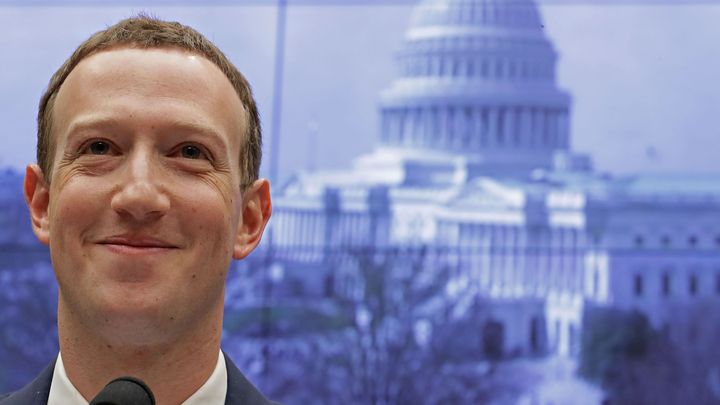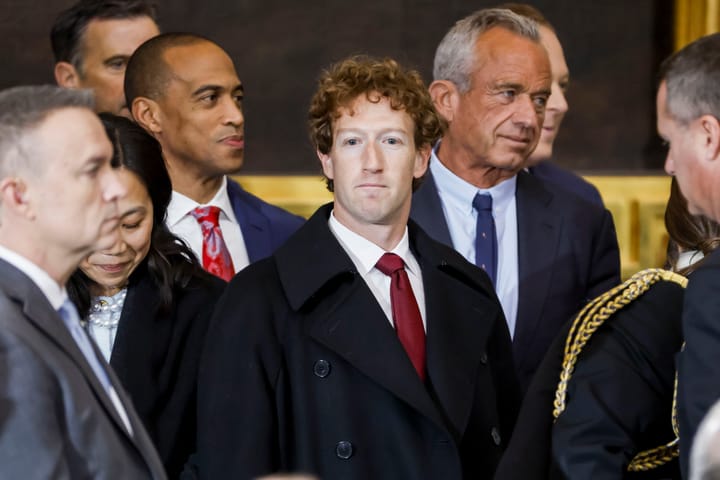This piece was authored by Max Moran, research assistant at the Revolving Door Project.
Facebook hired a Federal Trade Commission (FTC)-official-turned-corporate-lawyer to negotiate its slap-on-the-wrist of a settlement for the Cambridge Analytica scandal. As we wrote for the Daily Beast this week, turning to the revolving door undoubtedly helped the company. But that’s only one side of the table.
On the other side was James Kohm, the associate director of the FTC’s enforcement division, who lead the investigation. We’ll be closely monitoring his next career steps in the wake of the Facebook settlement and as the company faces an antitrust inquiry from the FTC’s bureau of competition. After all, in Kohm’s eyes, there’s practically no way that a company playing Big Brother can actually harm someone.
Kohm has run the FTC’s enforcement division for the last decade—a period in which onlookers complained that the Commission wasn’t doing nearly enough to crack down on bad actors. Before the settlement came down, the New York Times reported that Kohm was skeptical that the agency could prove that tech companies like Facebook cause harm to consumers.
“In recent months, FTC employees meeting with Mr. Kohm asked how he viewed news reports that big tech firms had tracked users’ locations without clearly disclosing the practice. Mr Kohm, whose division prosecutes boiler rooms, advertising scams, and other financial fraud schemes, responded that the tech companies were legitimate businesses offering free services, and it was unclear how they had harmed consumers, recalled one person in the meeting,” the Times wrote.
Oh, great! Good to know that being a “legitimate business” factors into whether a corporate wrong-doer faces any punishment! “You see, officer, I may have sold this man an exploding car yesterday, but I also registered my company with the proper authorities three years ago. You can leave now.”
More to the point, Kohm is applying a ridiculous standard that was specifically designed to let as many bad actors off the hook as possible. There’s been plenty of great journalism explaining how decades ago, big business’ allies, especially at the University of Chicago, smuggled their ideology into academic consensus through campaigns like the “law and economics” movement. One of their tools was the consumer welfare standard, which essentially argues that unless a company is artificially inflating its prices, it’s almost impossible for that company to be a monopoly. That’s most likely why Kohm doesn’t think a company can cause harm if its service is “free.”
So even if—just as a hypothetical—the commission that Kohm works for found that a company sold cell phone numbers to advertisers after promising not to do so, secretly tracked people’s faces for god-knows-what purpose, purchased every serious competitor to the point where its co-creator called it a monopoly, and flagrantly violated the rules that Kohm’s own office laid out the last time these concerns were raised…even after all of that…as long as that company had not raised consumer prices, that company still hasn’t harmed consumers. This is what the man in charge of enforcing our trade laws seems to believe.
And Kohm isn’t just a vessel for bad ideology—he’s also, as David Dayen wrote in the American Prospect, subject to bribery. At a press conference where he tried and failed to sell the settlement as a win for the little guy, Kohm was asked why CEO Mark Zuckerberg wasn’t deposed as part of the investigation.
“We didn’t need to depose him, but we could use that to get more protections for the public,” Kohm replied. “We got a lot of relief that we couldn’t otherwise have obtained, and that is in some small part due on not going further.”
Leaving aside that one deposes a king, not a businessman, the “protections” Kohm extracted are a few new certifications and overseers, none of which shift the company’s fundamental incentives or business model. It isn’t preventing new harms from occurring, it’s tweaking at the margins and magically thinking that this time, Facebook will listen to its better angels. As FTC Commissioner Rohit Chopra wrote in his dissent, “the order allows Facebook to decide for itself how much information it can harvest from users and what it can do with that information, as long as it creates a paper trail.”
Even more telling was Kohm’s follow-up. Asking Zuckerberg to testify, he said, could lead to Zuckerberg facing “a huge amount of litigation outside of the Federal Trade Commission.”
And why on earth do you care, Mr. Kohm? You don’t protect Mark Zuckerberg for a living, you protect the people! Even if Kohm has swallowed the “law and economics” pill, he’s directly admitting to putting the personal comfort of his litigation target ahead of the interests of justice.
And the proof is in the pudding—or in this case, the text of the settlement. In exchange for the meager fine and policy tweaks, this settlement actually prevents the FTC from investigating or prosecuting Facebook for any wrongdoing prior to June 12, 2019. That’s right; Kohm signed off on a deal that ties his own agency’s hands when it comes to oversight of a company that most Americans don’t trust. If, in the future, we learn that Facebook committed more privacy violations in the 2010s, the FTC will only be able to shrug and nod to the rope tying its hands, which the agency tied itself. Literally only Facebook knows how many violations the FTC is going to end up leaving unpunished.
Our caution around Kohm is also rooted in the FTC’s history. A Public Citizen analysis earlier this year found that over 75 percent of top officials at the Commission over the last two decades have either come from corporate interests confronting FTC issues, mainly in the tech industry, or left to take such corporate jobs. That means over three-fourths of the Commission’s top lawyers have traded on their connections, and these conflicts weaken the Commission’s ability to crack down on bad actors.
Still, we do not know Kohm’s motives—it is thoroughly plausible he is an unreconstructed old school law and economics devotee, even as law and economics academia has become considerably more favorable to regulation in the past few decades. What we do know is that Kohm had Facebook, an obvious and flagrant wrongdoer, in his hands—and he let it walk all over him. The Revolving Door Project wouldn’t have a name if it weren’t for executive branch lawyers looking out for their careers instead of the public interest. Suffice to say, if Kohm just happens to slide into a job working directly or indirectly for Zuckerberg or Big Tech soon, we will retract in full the benefit of the doubt about his motivations we currently grant him.
Max Moran is a Research Assistant at the Revolving Door Project at the Center for Economic and Policy Research (CEPR)
Related:


